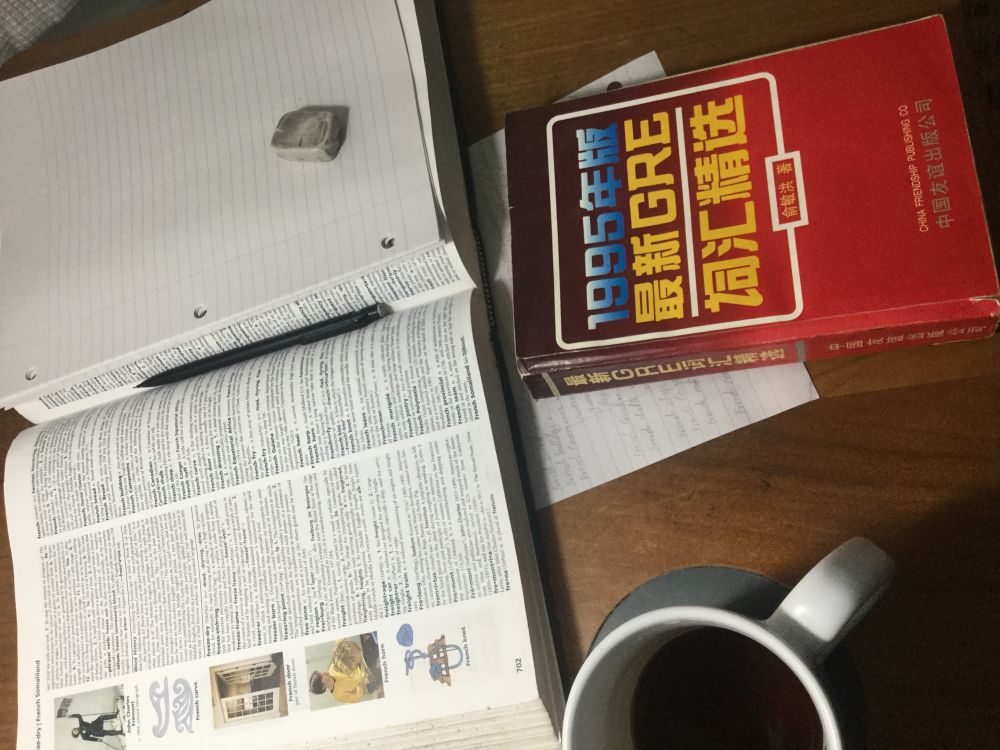
Reading a dictionary to learn English would've sounded dumb when I was preparing
for studying abroad in the late 1990s. By then, my classmates and I had already
gone through more than 10 years of regular classes. Many of us had passed the
national grade four and six exams. For me, better English equalled higher scores.
Trying to become a living dictionary would mean boredom and waste and doom to failure.
Talking about exams, I lived for them. One hurdle after another, they were the
reason I existed, the carrier of ambition, the fulfillment of family dreams, the
steps to a bright future, and the milestones of my young life. 20 years of
education had turned me into a professional test-taker. The TOEFL and GRE would
be the last hurdles. What lay beyond? I was too busy to care.
In those muggy Beijing summer days, I was hard pressed to master key words for
the verbal section. The 1995 New GRE Selected Words by Mr. Yu Minhong, our 700-
page bible, consisted of a list of about 6000 key words gleaned from past exams
and useful tricks on how to commit them to memory. At the time, I marveled at
them and couldn't help wondering what other occasions in my life would I meet
let alone use words such as 'epistemology'? (Well. It showed up, 20 years later,
in Taleb's books). Success demanded laser-sharp focus and there was no time for
such questions. I memorized the words, crushed the exams, and moved on.
Map-makers in the past used to say "There be dragons" for uncharted territories.
But I knew not enough to fear. I was good at exams and even better at being fooled
by that ability. I might have prepared differently for the life abroad had I not
been so smug about test scores. Once in the west where I had to actually use the
language to live, I floundered and lost my way in the proverbial wilderness and
left Mr. Yu's book alone gathering dust. The map I had was terribly wrong.
These days, I blame almost everything on deficiencies in English: workplace
frustrations, lack of sense of community, the loneliness and helplessness in a
foreign land that might sometimes come from things as trivial as not being able
to identify a tree, etc., etc. The phrase "freeze out,"
To shut out or exclude, as by cold or unfriendly treatment: The others
tried to freeze me out of the conversation.
sounded exactly what I felt in my early days in the valley among a majority of
foreign team-mates. They might not have tried to freeze me out on purpose, of
course. It was more likely me not being able to contribute with the right stuff,
in English.
Would reading other works, e.g., poems, essays, novels, self-help non-fictions,
Shakespeare, the Bible, etc., do it? It might for others but for me, only the
dictionary delivers the confidence from knowing that I have seen (almost)
everything under the sun. Moreover, the nuances go way beyond the words. The tone,
the shade, the etymology, etc., all play a part. Through 2000 pages of expounding
and repetitions of usages, concepts, and patterns of the language, I can't help
but absorbing whatever left unsaid in previous learning. And more importantly,
what I learn applies to life, the ultimate exam in my education.
|